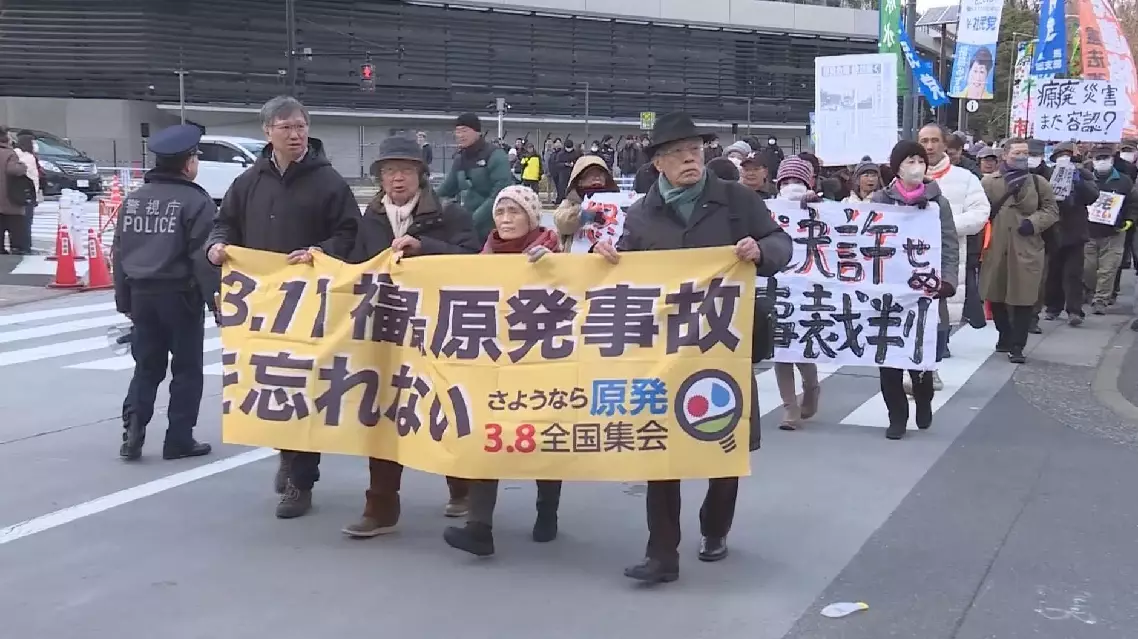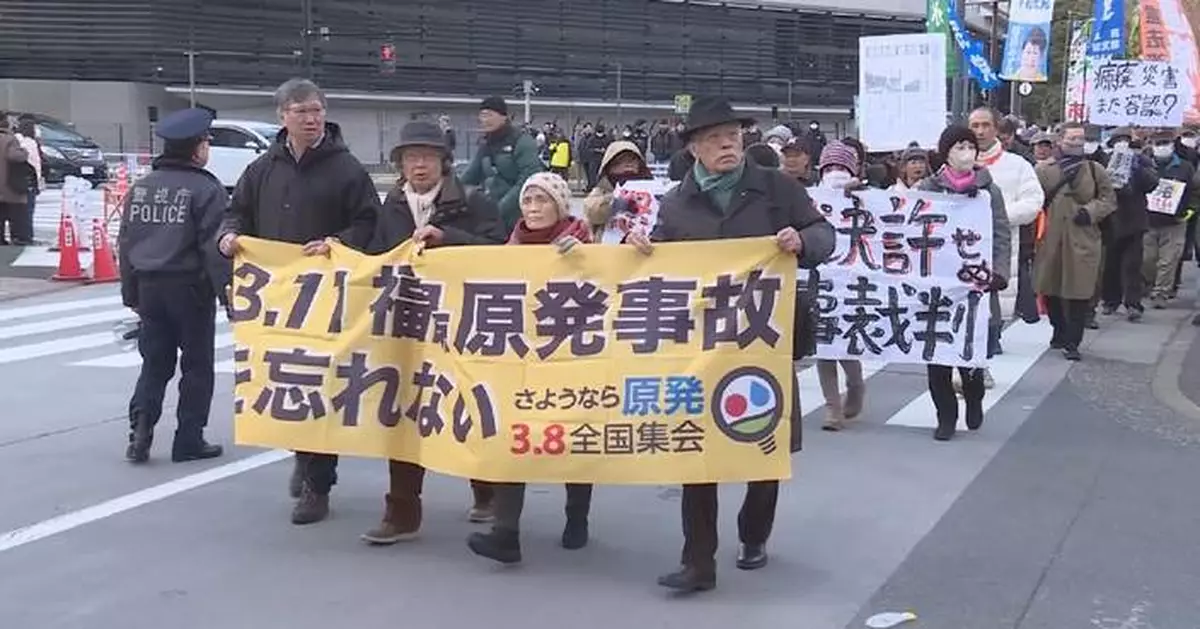Hundreds of anti-nuclear activists gathered in central Tokyo days before the 14th anniversary of the Fukushima Nuclear Disaster to commemorate the catastrophe and protest against Japan's current nuclear policies.
Despite the ongoing ecological and health impacts of the disaster, the Ishiba cabinet approved its seventh Strategic Energy Plan in February, stating that it would maximize the use of both renewable energy and nuclear power.
Compared to the sixth edition of the country's energy roadmap, the latest version omits the phrase "reduction of dependence on nuclear power, " signaling a shift in Japan's energy policy and sparking widespread public disagreement.
"I do not think it is scientifically sound to have a facility that stores uranium and plutonium for long periods. In the event of a natural disaster, it could lead to the destruction of humanity. I do not support nuclear power," said an activist from Tokyo.
The seventh plan envisions the country's reliance on nuclear power rising to about 20 percent by 2040, while renewable energy is expected to account for 40 to 50 percent. It also includes plans to initiate new construction projects and rebuild next-generation advanced reactors at decommissioned nuclear plant sites.
"Even if it costs some money, we should aim for zero carbon while developing renewable energy sources. We have to think about nuclear waste and other nuclear-related problems that may arise. It was totally the wrong decision," said another local activist.
Since the Fukushima Daiichi Nuclear Power Plant accident, 14 reactors have restarted, while 11 await approval. The new energy plan, which increases reliance on nuclear power, disregards the catastrophe and only heightens the risk of another disaster, according to many protesters.
"Over the last 14 years, the government should have promoted sustainable energy policies and development projects. Build skills and human resources. But instead, we have done nothing and are once again relying on nuclear power. It is a sign of the deterioration of Japanese politics," said an activist from Tochigi Prefecture.

Anti-nuclear activists rally ahead of Fukushima nuclear disaster anniversary
With dramyin lute and cymbals in hand and dressed in colorful traditional costume, 17-year-old Tenzin Norbu is among the proud youngsters in southwest China's Xizang Autonomous Region who have been helping preserve the centuries-old Tibetan opera, a multifaceted representative of Tibetan art and cultural heritage. Considered a living fossil of Tibetan culture, Tibetan opera is a comprehensive art combining folk songs, dance, storytelling, chant, acrobatics and religious performance. It was included on the UNESCO Representative List of the Intangible Cultural Heritage of Humanity in 2009.
Tenzin grew up listening to Tibetan opera along with his grandmother. The beat of the drum marked the rhythm of his childhood and quietly planted the seed of a dream.
The teenager leads a youth Tibetan opera troupe and guides his peers onto the very stage they once only dreamed of. He named it "Phudor Youth Tibetan Opera Troupe", because "Phudor" means "dream" in the Tibetan language.
"There are about 24 members in the troupe," said the teenager.
Tenzin once received a very special invitation to perform Tibetan opera for the opening ceremony of an art festival in Lhasa.
Although both their parents and teachers felt it's important for the children to be exposed to traditional culture from a young age, they didn't want it to affect their schoolwork.
The performance they were getting ready for was the first Sweet Tea House Art Festival, the troupe's very first public appearance. It's a rare opportunity for the children -- one too precious for them to pass up. But with their parents growing anxious about preparation for the performance eating into valuable study time, the children opted to rehearse in secret at weekends. Tenzin's family runs a tailor's shop. His father, who is hearing- and speech-impaired, is a superb tailor, while his mother helps him out by dealing with customers. Tenzin enjoyed Tibetan opera with his grandmother during childhood and later learned more about it from his uncle.
"Whenever I'm not feeling good, I'll take out the dramyin lute and the cymbals. When I hear the drumbeat, I get a feeling of elation that's simply indescribable," he said.
When Tenzin finally stepped onto the stage at the festival, he noticed that his parents were not in the audience. "My parents didn't have time to come to see my performance. But they always support me. They work hard every day, also for my sake. So, I'm happy whether they were here or not as long as I can keep performing Tibetan opera," said the youngster, believing that his passion for Tibetan opera will last a lifetime.

Childhood dream takes local boy onto Tibetan opera stage






















































